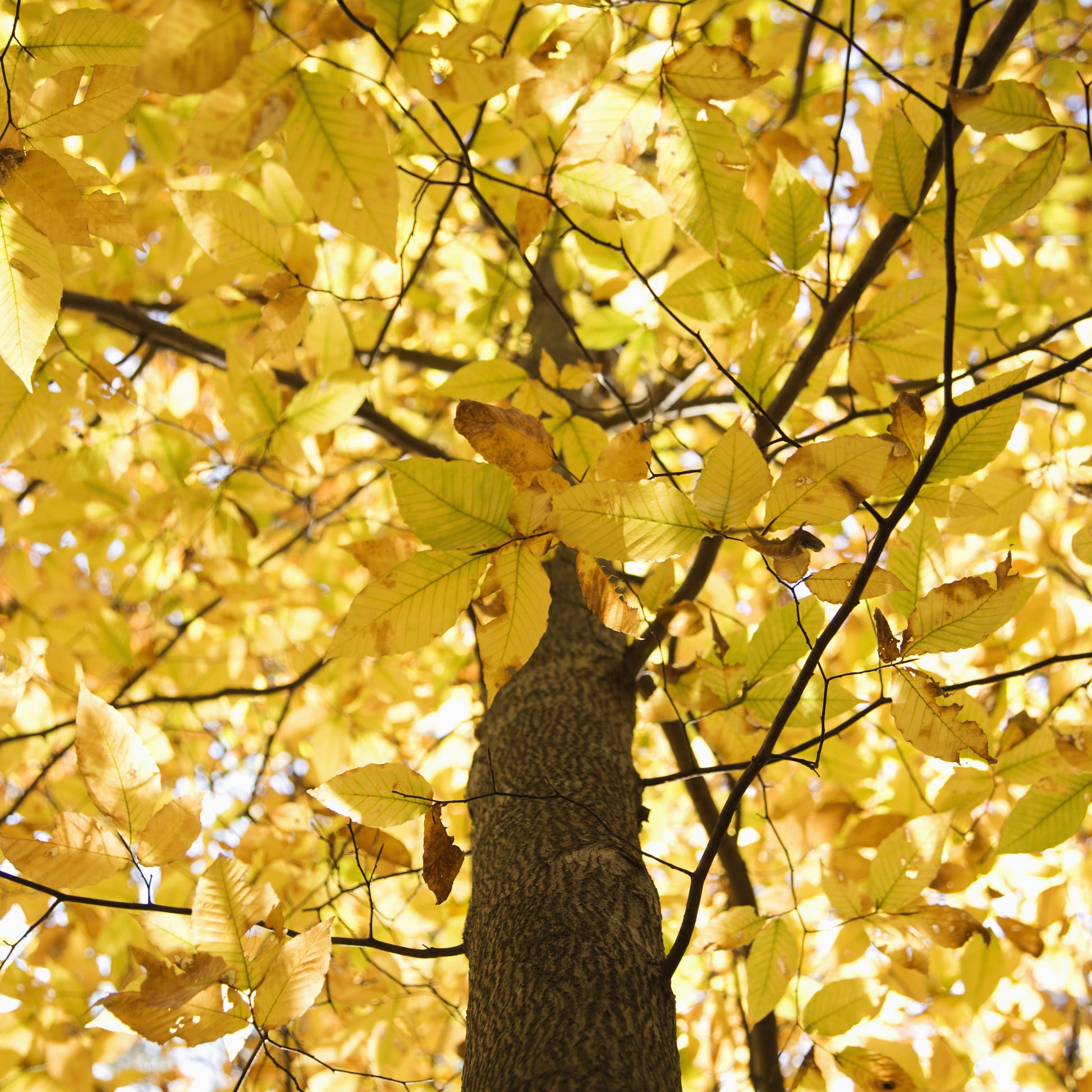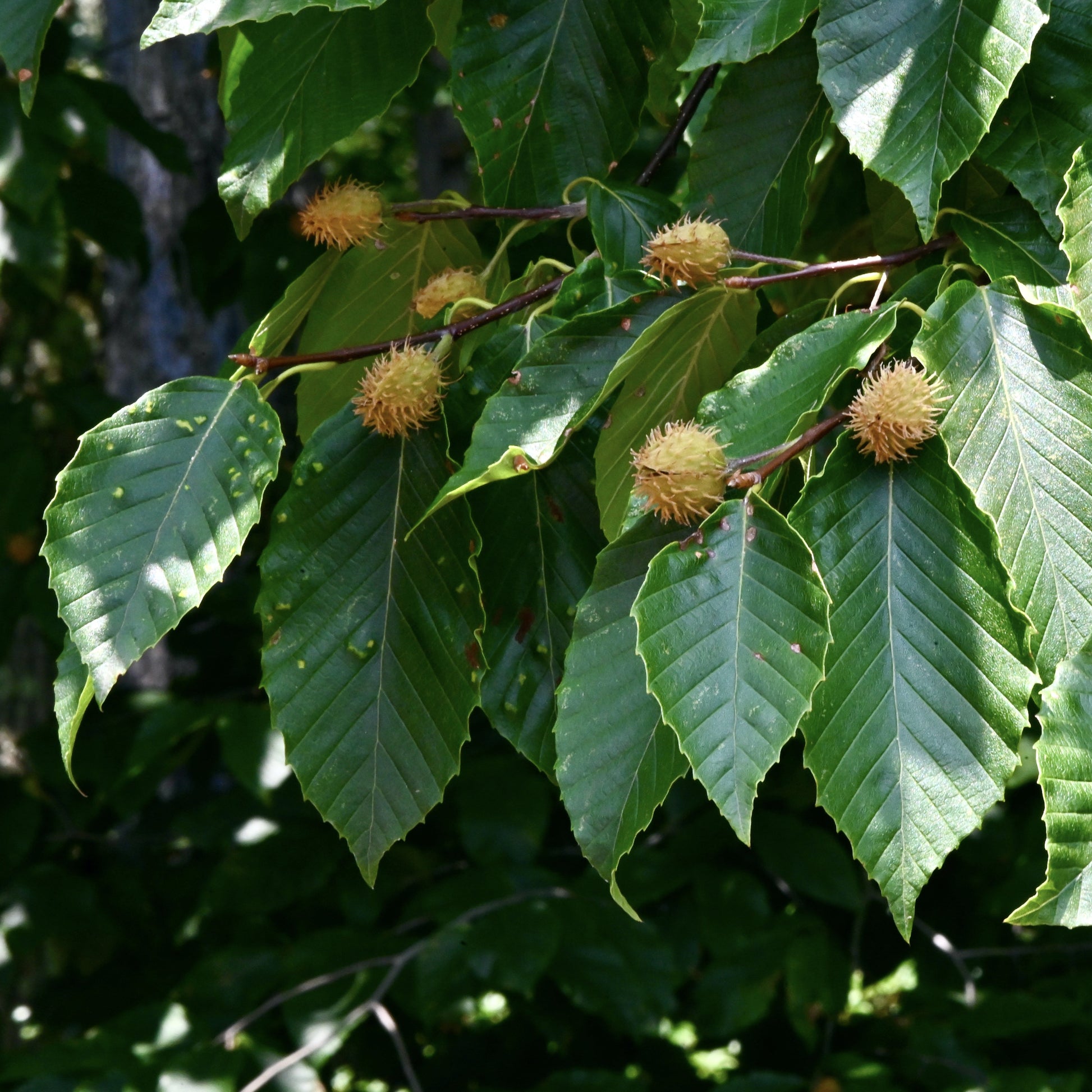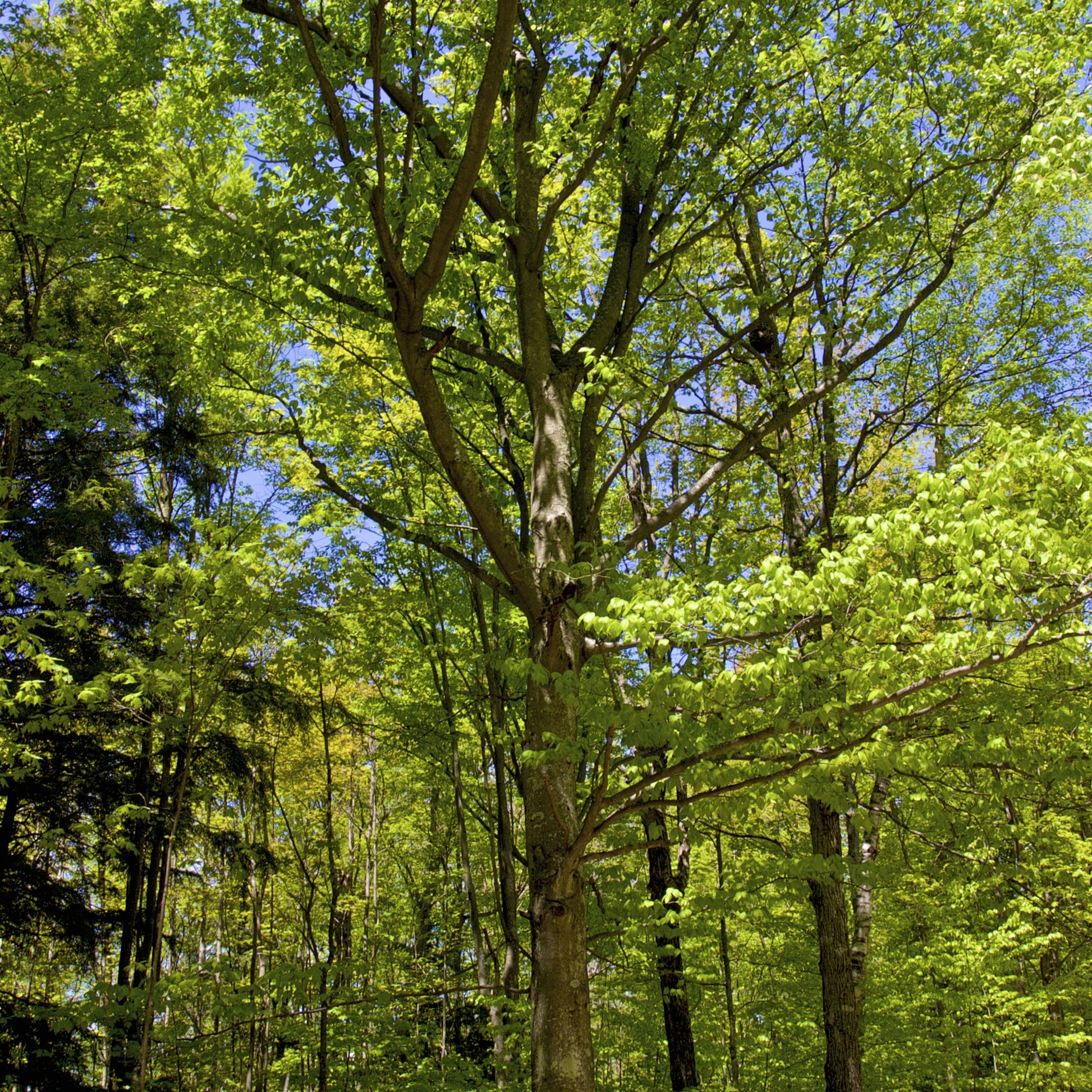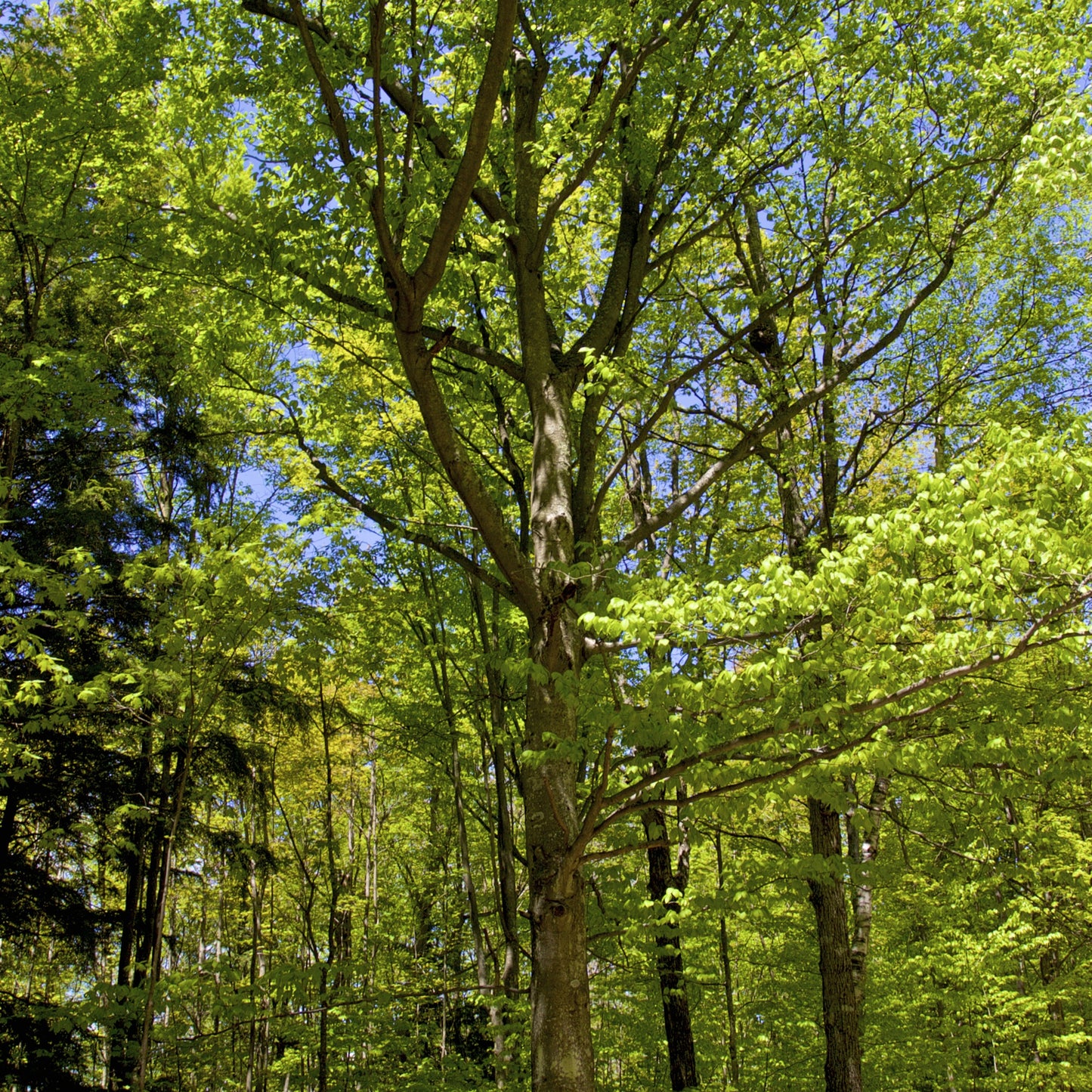Limited Quantities - Reserve Now For Fall
-
Intermediate Zones 3-9

-

-

American Beech Tree
American Beech Tree
Couldn't load pickup availability
Fagus grandifolia
American Beech Tree
The American Beech Tree is a majestic, long-lived native hardwood prized for its smooth gray bark, golden fall color, and dense branching canopy. Often found in mature eastern forests, this iconic tree brings shade, structure, and wildlife value to any landscape while commanding attention with its stately presence.
Perfect for woodland gardens, large landscapes, naturalized groves, and legacy plantings, the American Beech is a slow-growing but incredibly rewarding native species with outstanding durability and beauty through every season.
American Beech Tree Overview
| Attribute | Details |
|---|---|
| 🌿 Botanical Name | Fagus grandifolia |
| 🏷️ Common Names | American Beech, Beech Tree |
| 🌳 Mature Height | 50–80 feet |
| 🌐 Mature Width | 40–60 feet |
| 📈 Growth Rate | Slow to moderate (12–24 inches per year) |
| ⏳ Lifespan | 100–300+ years |
| 🧊 USDA Zones | 3–9 |
| ☀️ Sun Preference | Full sun to partial shade (tolerates dense canopy conditions) |
| 🧱 Soil Type | Moist, well-drained loam or sandy loam |
| ⚖️ Soil pH | Slightly acidic to neutral (5.5–7.0) |
| 💧 Water Needs | Moderate; prefers consistent moisture |
| 🍂 Foliage Color | Dark green in summer; golden bronze in fall |
| 🌰 Fruit Type | Small edible beechnuts in spiky husks |
| 🐝 Pollination | Wind-pollinated; attracts wildlife with fall mast |
| 🌿 Growth Habit | Broadly rounded, dense canopy with smooth bark |
| ↔️ Spacing | 40–60 ft apart for large tree groves or specimen planting |
| 🏡 Landscape Uses | Shade tree, woodland edges, native legacy plantings |
| 🧹 Maintenance Level | Low once established |
Environmental Benefits
🌰 Produces beechnuts for birds, squirrels, and deer
🌿 Supports mature forest ecosystems and native understory plants
🌳 Offers deep shade and cooling canopy coverage
🌎 Long-lived species ideal for carbon storage and reforestation efforts
Pros & Cons
| ✅ Pros | ⚠️ Cons |
|---|---|
| 🌳 Iconic native tree with architectural beauty | 🐢 Slow growing; requires patience for mature size |
| 🌞 Excellent shade tree with dense summer foliage | 🌱 Young trees may struggle in overly compacted or dry soils |
| 🐿️ Produces edible nuts for wildlife and natural foragers | 🪓 Large size makes it best suited for spacious properties |
| 🧬 Extremely long-lived and structurally strong | ❄️ Sensitive to salt and soil disturbance near roots |
| 🏡 Valuable for legacy and native woodland landscapes | 📏 Not ideal for small residential lots |
Planting & Care Guide
🛁 Hydrate root zone thoroughly before and after planting
🕳️ Dig a wide, deep hole to accommodate large root spread
🌾 Apply mulch 2–4 inches deep around base; keep clear of trunk
💦 Water consistently, especially during the first 3–5 years
✂️ Minimal pruning needed; remove only damaged or crossing branches
🧪 Fertilize sparingly; prefers organic-rich, undisturbed soil
The American Beech Tree is a symbol of strength, endurance, and natural beauty, offering centuries of shade, wildlife support, and woodland elegance. Whether planted in native groves, educational landscapes, or long-term restoration projects, this towering giant is a legacy worth growing.
Share






